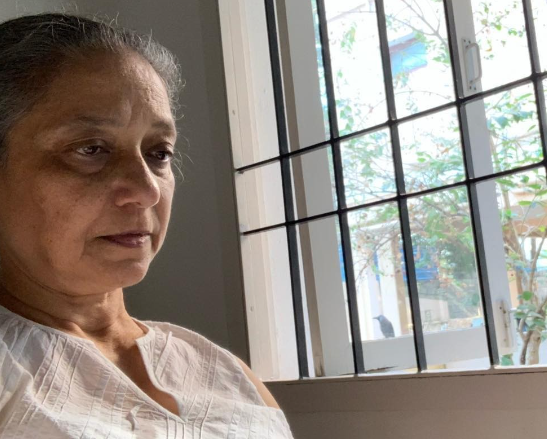The sexual harassment accusation that has rocked the Rukmini Devi College of Fine Arts, run by the Kalakshetra Foundation, has had a precedent at the prestigious institution. In an interview with Connected to India, given just after the controversy made the first headline, former Kalakshetra Foundation director and renowned classical dancer Leela Samson said that during her tenure, too, such an allegation had come up and she had directly intervened in it. The matter was then handled internally.
Without naming who had been accused at the time, Leela Samson said, “I warned the gentleman, with his wife present, of consequences if the suspicion and doubt arose again.”
In the current case, so far this week, noted Bharatanatyam dancer and assistant professor Hari Padman has been arrested; three other accused male teachers — Sanjith Lal, Sai Krishnan, and Sreenath — have had their services at the institution suspended; and Divya Hari Padman, wife of the main accused, has filed a counter complaint with Chennai Police, alleging that her husband was being framed because of professional jealousy and instigation on the part of two teachers, Nirmala Nagarajan and Nandhini Nagarajan. A recent Twitter Spaces session featuring Kalakshetra alumnae has seen some very strong testimonials in support of Hari Padman.
As the controversy unfolded, CtoI reached out to noted performers associated with Kalakshetra. One of them, Dr Anita Ratnam, performer and Kalakshetra alumna, told this website, “I stand in solidarity with the students — young women and men — who have been targeted for body-shaming, sexual slurs, harassment, innuendo, threats and emotional torture, with the management unwilling to listen to their complaints.”
‘A distance must be maintained between the teacher and the taught’
Among all the issues that have been churned up during the controversy, there has been some criticism of the system followed at Kalakshetra, based on the traditional Indian guru-shishya parampara, where teachers and disciples live in close proximity on shared grounds. The critics have pointed out that large, secluded cultural complexes, which are like a world unto themselves, could make it hard for victims to speak out, especially as the guru-shishya relationship would be considered sacred.
On April 2, The New Indian Express quoted a former student as saying that Kalakshetra teachers harboured “a medieval line of thought”, as they saw a teacher as having supreme authority over a disciple.
Asked if a system like this put students at a disadvantage when it came to any probable sexual exploitation by teachers, Leela Samson replied, “It is not only the guru-shishya parampara… As you know, exploitation happens in homes as well, between those with power and those without. It happens in corporate offices, as also in joint families. Most of it is not spoken about, out of fear of losing one’s job or relationship within the family.”
She also said, “Artistes are human and have the same impulses as everyone [else]. Between young students of the arts and their seniors, especially with their teachers — there is the greatest admiration for what the seniors and teachers can do. This pure admiration in the learner cannot be exploited by the other. It has to be carefully nurtured. A distance must be maintained between the teacher and the taught.”
To the CtoI question of whether changes were required in how the Kalakshetra administration functioned, Samson said, “Without doubt. A fair and frank atmosphere of trust and mutual respect must exist for a happy environment in any educational establishment.”



